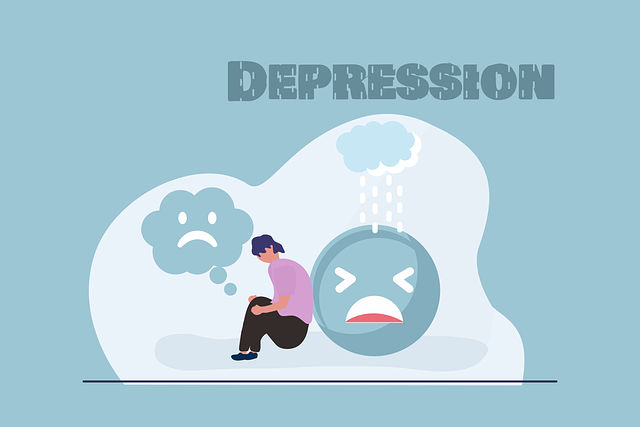Cultural competency in healthcare, especially at Broomfield Postpartum Depression Therapy (BPDT), is crucial for effective patient care among diverse demographics. By understanding and respecting cultural differences, providers can address unique needs, overcome barriers like language or stigma, and improve outcomes. BPDT offers specialized support to new mothers from various backgrounds through culturally sensitive practices, risk assessments, and training, aiming to reduce postpartum depression and foster inclusive environments. Effective competency training for healthcare professionals should be interactive, combining theoretical knowledge with empathy-building and resilience-enhancing strategies, leading to tailored care and positive patient outcomes.
Healthcare provider cultural competency training is an essential aspect of modern medical practice, especially in diverse communities. This article explores the critical need for cultural sensitivity in healthcare, focusing on areas like Broomfield Postpartum Depression Therapy. We delve into the impacts of cultural biases and present effective strategies for training, measuring success, and enhancing patient outcomes. By understanding and addressing cultural competency, healthcare providers can offer more inclusive and compassionate care.
- Understanding Cultural Competency in Healthcare: A Necessary Approach
- The Impact of Cultural Biases on Patient Care and Outcomes
- Broomfield Postpartum Depression Therapy: Addressing a Critical Need
- Designing Effective Training Programs for Healthcare Providers
- Measuring and Evaluating the Success of Cultural Competency Initiatives
Understanding Cultural Competency in Healthcare: A Necessary Approach

Cultural competency in healthcare is an essential aspect that has gained significant attention in recent years. It involves recognizing and respecting diverse cultural beliefs, values, and practices within a healthcare setting, ensuring every patient receives quality care tailored to their unique background. This approach is crucial, especially with increasing demographics that reflect a wide range of ethnicities, religions, and cultural norms.
In the context of Broomfield Postpartum Depression Therapy, for instance, healthcare providers must be culturally competent to address the specific needs of new mothers from various backgrounds. This includes understanding the potential cultural barriers to seeking therapy, such as language differences or unique societal expectations surrounding mental health. By incorporating Cultural Competency Training and utilizing conflict resolution techniques, healthcare providers can prevent burnout, improve patient outcomes, and foster better relationships within diverse communities, ultimately enhancing overall care quality.
The Impact of Cultural Biases on Patient Care and Outcomes

Cultural biases among healthcare providers can significantly impact patient care and outcomes, especially in diverse communities. Unconscious stereotypes or assumptions about a patient’s background, beliefs, and preferences can lead to miscommunication and suboptimal treatment. For instance, a provider with limited understanding of a patient’s cultural practices might overlook essential aspects of their health history or make inappropriate recommendations. This could be particularly harmful in cases like postpartum depression, where Broomfield’s specialized therapy services aim to address the unique needs of new mothers from various cultural backgrounds.
When healthcare providers lack cultural competency, patients may face challenges in expressing their concerns and feelings, further complicating diagnosis and treatment. This can result in delayed care or misdiagnosis, negatively affecting patient outcomes. By promoting self-care routine development for better mental health and implementing stress reduction methods, mental illness stigma reduction efforts can also be enhanced through culturally sensitive practices.
Broomfield Postpartum Depression Therapy: Addressing a Critical Need

In many communities, including Broomfield, postpartum depression (PPD) is a growing concern that demands immediate attention. This mental health issue often goes unnoticed or untreated due to societal stigma and lack of awareness, especially within diverse cultural settings. Broomfield Postpartum Depression Therapy (BPDT) emerges as a crucial initiative aimed at addressing this critical need. By incorporating cultural sensitivity in mental healthcare practice, BPDT offers specialized support tailored to the unique experiences of new mothers from various ethnic and socio-cultural backgrounds.
The integration of cultural competency training for healthcare providers is vital in improving anxiety relief among postpartum patients. Mental health professionals are equipped to conduct comprehensive risk assessments to identify and mitigate factors contributing to PPD. Through this approach, BPDT not only provides much-needed therapy but also fosters an inclusive environment that respects individual cultural beliefs and practices. By recognizing the impact of cultural nuances on mental well-being, Broomfield Postpartum Depression Therapy sets a standard for compassionate care, ensuring no mother feels isolated or left untreated during this vulnerable period.
Designing Effective Training Programs for Healthcare Providers

Effective healthcare provider cultural competency training programs require careful design to ensure they are engaging, relevant, and impactful. These programs should go beyond surface-level awareness and focus on building practical skills that bridge cultural gaps in care. Incorporating interactive workshops, case studies reflecting diverse patient scenarios, and role-playing exercises can help providers develop empathy, improve communication, and enhance their ability to deliver culturally sensitive therapy, such as Broomfield Postpartum Depression Therapy.
Curriculum should include a mix of theoretical knowledge about different cultural perspectives and practical empathy building strategies and resilience building techniques. Encouraging self-reflection through journaling or discussion groups allows providers to process complex topics and integrate new learning into their practices. By fostering an environment that promotes open dialogue, emotional safety, and the sharing of diverse experiences, training programs can equip healthcare providers with the tools needed to offer compassionate care tailored to each patient’s unique cultural needs.
Measuring and Evaluating the Success of Cultural Competency Initiatives

Evaluating the effectiveness of cultural competency training is crucial for healthcare providers to ensure their initiatives are making a meaningful impact. This process involves setting clear goals and metrics to measure success, which can include improved patient satisfaction rates, enhanced clinical outcomes, and increased access to mental wellness services like Broomfield Postpartum Depression Therapy. By tracking changes in patient engagement and treatment adherence, institutions can gauge the reach and effectiveness of their training programs.
The evaluation should also delve into the internal aspects, such as provider self-assessments and feedback, to understand shifts in cultural awareness and skills. This data, coupled with patient outcomes, allows for a comprehensive analysis, enabling healthcare organizations to refine their strategies, integrate best practices, and promote inner strength development and emotional regulation among both staff and patients, as highlighted by the Inner Strength Development and Emotional Regulation efforts in Mental Wellness Podcast Series Production.
Healthcare provider cultural competency training is no longer a choice, but an imperative. As highlighted by the success of Broomfield Postpartum Depression Therapy, addressing cultural biases in healthcare directly impacts patient outcomes. Effective training programs, meticulously designed and rigorously evaluated, are key to fostering inclusive care environments. By measuring the success of these initiatives, we can continuously enhance healthcare delivery, ensuring it meets the diverse needs of all patients, regardless of their cultural background.













